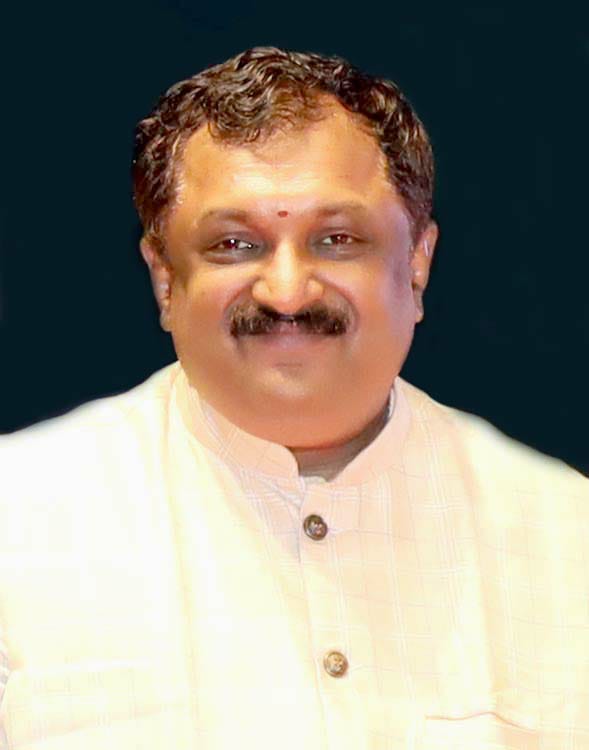Indian knowledge can be understood only when people start speaking Sanskrit
“I do not want Sanskrit language to be related to the history and termed as classic language, like Latin or Greek languages, which nobody speaks today. It should be the language of the futureâ€. The statement by Vice-Chancellor of Kavikuklguru Kalidas Sanskrit University, Ramtek Dr Shrinivasa Varakhedi may surprise many. But he explains his vision during a long discussion.

The Indian knowledge, education system, skills can be understood only if the Sanskrit language is accepted as spoken one. The rich ancient books written on varied fields can be taken to the masses only by using the language by all. This does not mean that the existing regional languages should be done away with. All other languages can enrich Sanskrit language and the vice versa.

Dr Varakhedi, who is also holding additional charge of Gondwana University, Gadchiroli has been working tirelessly, with great vision and determination. “Unfortunately very small part of Sanskrit literature, mostly related to religion and rituals have been translated into other languages. The science and technology has not been translated and was therefore, cut off from the future. The treasure of Indian literature in various fields, therefore, remained confined to librariesâ€. Only in the last few years, people have started getting information about courses being conducted by the Sanskrit University and its objectives. The language has been isolated for its own study and research. However, it has also resulted in distancing from masses and other languages.
Mathematics, geophysics, astonomy, space science and even computer science as mentioned in ancient literature in Sanskrit must be studied. They are seeds for the future. Innovative ideas using these seeds can be immense help for future development, Dr Varakhedi said. “It is not that the Sanskri literature has everything. But with the help in modern science the ideas mentioned then can be explored and developedâ€, he added.
Besides conducting courses in Sanskrit language, courses in various other courses are available in the University and affiliated colleges. This includes Hospitality Studies, Library Science, Child Care, Sanskrit writing and speaking and recognised courses in Public Services.
Dr Varakhedi said that for learning Sanskrit and later knowledge hidden in the ancient Indian literature Sanskrit need not be made compulsory subject. “It should happen compulsoryâ€. People should realise that learning Sanskri is important than teaching. It should not remain as classical language. Instead it should be modern language spoken and understood everywhere. He is looking forward for making it a language of all.
Ayurved and Yoga and psychology as mentioned in ancient Sanskrit literature can be measured on modern parameters. Theatre, linguistics, culture, music, food science cannot be studied properly without referring to Indian tradition. Sanskrit literature has all life-related issues, which must be explored. “Unfortunately we have been blindly adopting parameters set by western countries. For developing Indian standards understanding Sanskrit is necessary. This will help in understanding the concepts of Indian life styleâ€, Dr Varakhedi firmly stated.
Modern science has developed various tools, including those used by modern health practitioners. Ayurvedic must use them for better use end effect of traditional medicines. From stethoscope to recent ultrasonography, CT Scan are development of science and not modern medicine. They should be used by practitioners of all health sciences.
Those in computer science have recognised contribution of ancient Indian scientist Panini, who mentioned about the possibilities of developing computer and its language, 3000 years ago.
Dr Varakhedi concluded with the remark, “Sanskrit cannot be taught in closed classrooms, it should be learned by people with their own interestâ€.
Out of 18 Sanskrit Universities in India, including three central universities, KKSU has earned a distinct place for promoting innovative ideas and working on achieving them.
Dr Varakhedi has been honoured with several awards for his contribution in the field of developing and promoting Sanskrit and knowledge in it. He wishes that youth should learn the language and develop indigenous knowledge in all fields of science and technology, art and culture, agriculture and food, health and nitration, yoga and sports. The concepts adopted from foreign literature can then be done away with.
👉 Click here to read the latest Gujarat news on TheLiveAhmedabad.com




